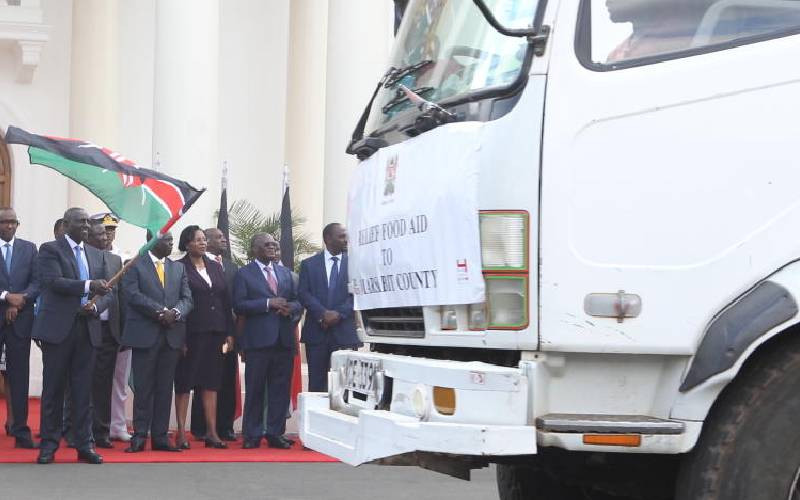×
The Standard e-Paper
Join Thousands Daily

President William Ruto flagged off food relief aid at State House to mitigate the effects of drought in 23 Counties on September 26, 2022. [Jonah Onyango, Standard]
If we were to reverse the clock of history back to 11 years ago, our hearts will melt and our eyes be filled with tears of joy for the great acts of generosity demonstrated by the Kenyan people. The Midas touch here would be Kenya for Kenya initiative in July-August 2011.